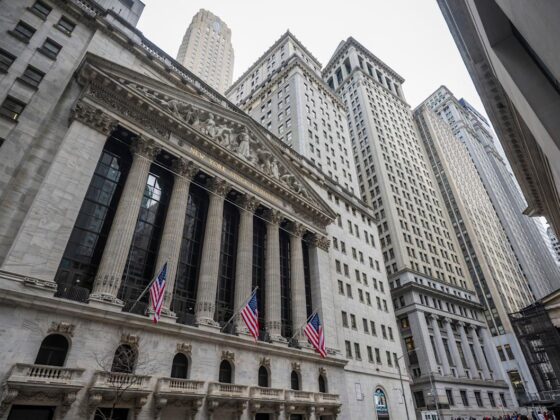UK investors pulled a record amount of money from equity funds in the third quarter, as they “ran scared of sky-high stock markets”, said Calastone.
The firm said that UK investors withdrew £1.2bn of their equity-fund holdings in September, taking the total outflows for the quarter to £3.64bn, the worst of any three-month run on Calastone's 11-year record of the data.
The latest Fund Flow Index from Calastone said that every major equity fund sector saw outflows in September, except for those focused on Europe.
Investors pulled £203m out of global equity funds last month, marking the fourth consecutive month of net selling. North American funds shed £146m, Asia-Pacific funds saw outflows of £209m. UK-focused funds shed £691m, with China, Japan, emerging markets, small cap and sector funds also seeing outflows.
However, investors added a net £203m to their holdings in European-focused funds. Calastone said this marked the fifth month in a row of inflows for the sector, but added that net buying in each month has been smaller than the last.
Read more: Shell expects ‘significantly higher' gas trading in the third quarter
The global funds network's findings come as major stock markets continue to notch fresh highs, with the UK's FTSE 100 up 16% year-to-date, while the US S&P 500 (^GSPC) has gained nearly 15% in that time.
“It is really unusual to see markets reaching record highs while investors are moving decisively for the exits across such a broad range of funds,” said Edward Glyn, head of global markets at Calastone.
He explained that this prolonged period of net selling was “noteworthy” given the structural bias towards inflows over time as investors save for the future.
“Frankly, nobody knows when the next market correction is coming, or even if one is at all imminent,” said Glyn.”Some parts of the US market in particular do seem to be exhibiting signs of irrational bubble behaviour, particularly those perceived to benefit from the AI boom.”
He added it can be “tempting to bet against the market when these signs appear, but share prices can defy fundamentals for a long time and that is costly for investors on the sidelines”.
Calastone found that fixed income and money market funds benefitted from investors' caution towards equities in September, between them receiving £895m of new cash. Of this amount, £610m was put into bond funds, while £285m went into money market funds – which invest in cash, cash equivalents and short-term debt securities.











